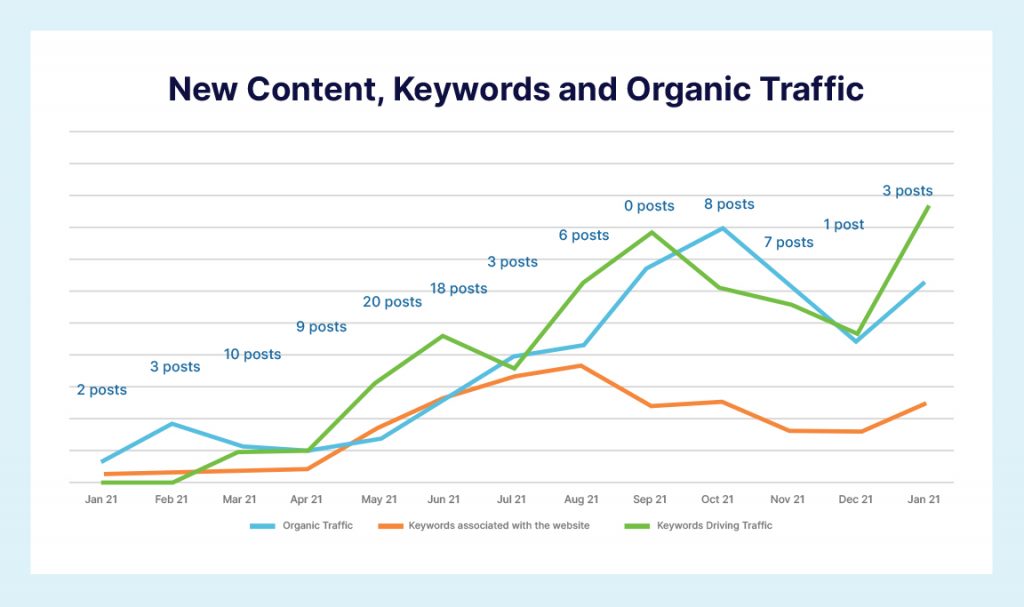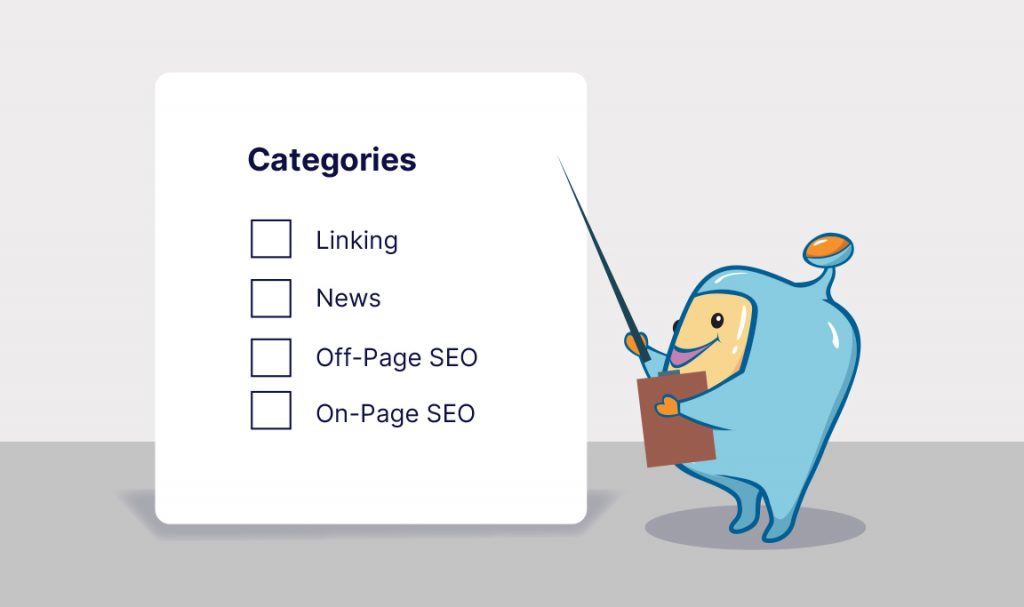SEO Writing may sound like an easy type of writing, especially if you already specialize in writing; may it be as a freelance writer, informative content writer, or simply just a content creator writing blog posts talking about anything under the sun.
But today, we are not merely talking about writing high-quality content where you can just use any words and say anything you want. Today, we are talking about SEO writing.
The question is, what is SEO writing and how is it different from other content writing types?
SEO writing basically deals with writing and targeting SEO keywords with focus on different elements such as search volume, search intent, search engine algorithms, search traffic, search engine crawlers, etc. The goal of writing for SEO is to optimize the content so that it will rank in search engines.
I know there’s too many terms I’ve mentioned but basically, writing for SEO involves an approach that appeals not just to the reader but also to the search engines.
A piece of content can stand out in the main search engines faster when copywriters’ creativity plus a SEO content writer’s skills in optimizing content are combined in the content writing process.
Writing for SEO may sound like a simple procedure since it follows a certain process of writing content that involves a content strategy, data that has been thoroughly analyzed, and a flair for writing. However, it is not all that easy, in fact, it can be quite difficult sometimes.
This is because you’ll need to conduct keyword research first to determine the user intent and the search intent, what type of content searchers consume, as well as analyze competitors to discover their competitive edge, plus any content gap.
You are writing to build relevancy for the search algorithms and also for the readers who will be seeing your listing in the search results and would then decide if they should click and visit your site among all the others. It does not end with the click, too. Once they get to your page, their reason for their search should also be satisfied by your content, and in turn, lead to conversion.

Writing for SEO is vital since it is one of the most effective marketing strategies to ensure that your content reaches your intended audience, as well as to get a front row (first page) ticket to your favorite show (search engine)! Otherwise, we’d be wasting our time. People would not find your content and it would be of no benefit to anyone, including users and search engines, if you basically fall to pages 3 and up of the SERPs.

An SEO copywriter (SEO writer) creates content (blog post/article) that aids in the optimization of a website’s search engine rankings. Although the position is comparable to that of an SEO specialist, they are not identical.
An SEO copywriter often writes SEO articles to complement the SEO specialist’s approach rather than evaluating, reviewing, and implementing modifications to existing content to improve a site’s ranking.
In order to appeal to—and persuade—readers, an SEO copywriter must strike a balance between writing for search engines and writing for people.
When we say writing, it does not only mean that as long as you know how to write a blog post/article you’re good to go. In SEO content writing there are things you need to consider to become an effective SEO writer and again, there is a term or process to follow when it comes to the SEO writing process.
The first skill that you need to possess is actually Language skills. Language skills pertains to knowledge in grammar, spelling, and the strategic use of words (keyword ideas; primary keyword, relevant keywords, target keywords, etc.) and phrases (long-tail keywords/focus keywords) are all important aspects in determining the quality of your material. When we say quality in SEO content writing, these involves the process of gathering seed keywords, checking if it is a competitive keyword, the keyword difficulty, etc. – all these through using a keyword research tool.
Good writers structure their information with the following three factors in mind: readability, long-term retention, and making an impression on their readers’ minds.
The writer should also consider the tone and style of a piece of writing. These are extremely important in determining if the information is compelling content – enough for readers to take time out of their busy schedules to read through it. You should remember that readers are attracted to content pieces that are both valuable and well-presented. Designing content in a way that considers the demands of the target audience should be done with caution.
Another skill that a SEO writer should have is an understanding of SEO (Search Engine Optimization) and WordPress.
If you want to be an excellent content writer, you’ll need to have a fundamental understanding of WordPress. There are several WordPress themes available with pre-programmed automated results; all you need to do is install a plug-in to get started.

If you want to be a top content writer, you’ll need to master everything there is to know about Search Engine Optimization (SEO). In the realm of digital publishing, search engine optimization is the process of using strategies to optimize the content of a webpage in order to boost its visibility and attract more traffic by gaining higher rankings in search engine results.
This is accomplished with the help of SEO tools, a set of well-defined procedures that correspond with a search engine’s practice and requirement to crawl, and by creating relevant, valuable material for its users.
Creating content while keeping SEO principles in mind is a skill that is in high demand when it comes to meeting the needs of various clients.
Adaptability is one of the skills that an SEO content writer should have. We know that content writing styles come in a variety of shapes and sizes. These styles are designed to meet the needs of various business sectors. Because of the wide variety of products and services on the market, different forms and types of content are required to attract potential clients.

You must adapt to your clients’ needs in order to be a successful content writer. The material you generate for them should reflect their company’s values and culture, as well as provide a good indication of the quality of the services and products they’re trying to market.
A buyer can make an informed purchase with the help of good content. You must be familiar with the organization for whom you are writing, in order to deliver outcomes. To stay on top of your game, you must also be able to seamlessly navigate between domains.
Also, being aware of any new rising trends is a must! This raises your chances of being in high demand at all times.
Of course, how can we forget your research skills! To write compelling content, the SEO content writer needs a lot of research. Luckily, we live in a digital era so it is not hard for you to read and search things. However, if we examine the accuracy of this knowledge, most of what is said and known falls flat.

Remember that there are just a few sources that may be trusted: public databases and papers, peer-reviewed publications and journals, and, of course, books authored by experts or interviews given by specialists.
Because anybody can edit and write entries on Wikipedia, you can’t rely on it for accuracy. There’s also a good likelihood that the Wikipedia page’s reference source is inaccurate.
It’s always a good idea to go back to reports produced by experts or a group/organization of specialists for accurate information. You can only find trustworthy information if you know where to look.
One thing that every writer should do is being original and writing original content, it is our rule of thumb. The capacity to remain original will determine your chances of surviving in the field of content writing. Plagiarism is a severe crime that can result in legal consequences. Being distinct is also important for SEO. The nature, income, and flexibility of the work you will be approached for are heavily influenced by your originality in your ideas, style, and nature of the content you create.
Another skill is the ability to stay organized. Delivering high-quality work on schedule sends a strong message to your clients and readers about your commitment to the project you’ve taken on. Keeping track of deadlines and staying organized in keeping records of your work such as the date the job was given, submission dates, and well-compiled, credible sources of the material you used in your article, will save you a lot of time and confusion. It’s also a good idea to keep note of the changes you’ve made.
Today, knowing how to use social media to promote your content is also a must. Content promotion on social media is a significant market for attracting readers to your material. It is also part of SEO content strategy when it comes to content marketing. If used appropriately, social media may assist you in establishing a trusting relationship with your audience. It assists in the development of a personal relationship with the intended audience. As a result, more people will see your article and this would possibly result in a good conversion rate. If you want to be a good content writer, you should learn how to use social media effectively.

Finally, you also need to have editing and revising skills. As a content writer, your ability to edit and modify your work efficiently over and over refines you. Examining your work from the perspective of a reader to improve the material you’ve generated is a habit that demonstrates your caliber as a content writer.
Above all, you’ll need strong determination, perseverance, and the correct kind of expert assistance to master the art of content creation. It’s a skill that you can master through working on projects with tight deadlines and obtaining more and more hands-on experience.
The next thing that we are going to discuss are the basics and how to write for SEO.
Let’s start with the title, as a writer you need to write a good title (Title tags) for your content. Your bread and butter is a good article title. Remember that your keywords should be as close to the start of the title as possible.
By gazing at the top of your browser window, you can see the page title. Page titles should be under 66 characters in total, to avoid being cropped by search engines.
One of the most important steps in writing seo content is to mention keywords. One of the most difficult aspects of SEO is deciding on a keyword. What will the topic of your article be? After you’ve decided on a topic that’s hopefully related to your site’s theme, you’ll need to add it in a few more places; the title and headline of the page, the web address, the main body of your essay, the metadata of your website, the first paragraph of your blog article, all these should include your keyword.
You can start your content with a question, it is an excellent technique to avoid seeming like a robot. Also, use your keywords a few times in the body of your post but not too many, you can also use variations of your keywords in order to target these terms also.
Utilize anchor text to link to any relevant resources on your site or elsewhere that would expound on the topic. Doing so would help users in staying on your site and clicking through various other pages on your site.
Remember, don’t write too little. A good way to gauge how long an article should be is to conduct a competitive analysis of those ranking for your targeted keyword. Aside from getting an idea of how long the content should be, this would also show you the content they have and you could base your content on this. Their content is ranking so it means search engines like it. Replicate it and go above it by providing better, more exhausting content, that would satisfy the intent of the readers.
Focus on frequency. Posting frequently like more than once a week, trains search engines to return to your site and check it more frequently, which could cause your pages to rank higher over time.

Another thing to always put in your mind, don’t neglect metadata. If you’re not familiar with the term, meta stands for information about information, and it refers to the information about your content that search engines perceive but that your readers won’t. The meta data helps search engines understand what your page is about.
Use keywords in your meta tags, as well as the title and description of your page. Some blog themes take care of this for you already. If not, look for one that does or utilize a third-party tool such as a plugin.
Of course, once you complete your article, make good use of images. Include your keywords in the image title, alt text, and description. Images can also keep the reader’s attention and encourage them to click on other stuff on your site. In addition, images can rank in image search which is an additional channel to get visitors to your site. Adding your keywords and describing what your image is about also helps those who use screen readers. Take note that search engine robots also do not have eyes and rely of these data to understand what an image is.
To make your content organized, use categories. Smartly name your categories to focus on main terms that your blog may discuss.

Also, please change the name of your “uncategorized” category to something more interesting like Miscellaneous or General, even News, any category that fits your site and content.

Don’t forget to add header tags. This is a little technical, but not nearly as difficult as it appears. It’s no problem if your theme allows you to create headings or subheads since this is a built-in function for WordPress. If not, all you have to do is add some easy code to your article’s HTML section. You should utilize subheads to guide your reader through the post, but you should also use H1, H2, and H3 tags to leverage variations of your keywords. Please note, if your blog system takes this from your title, don’t use the H1 tag in a post.
The importance of links in improving your search ranking cannot be overstated, especially others linking to your site. There are three options for doing so when it comes to link-building:
Use anchor text using your keyword or keyword phrase to link to other useful articles. Encourage others to link to you by either asking or producing excellent content. Use anchor text to link to other articles on your site.
The most crucial are inbound links also known as backlinks, they are very beneficial and is one of the main factors considered by Search Engine when ranking a site/page. Guest posting is a wonderful way to build links apart from generating quality content.
When everything is done and good to go, get social (Social Shares). While it’s unclear how much social media links like Facebook and Twitter affect SEO, they are still a factor. The most essential reason though, is that social media shares attracts the attention and eventually links of other bloggers and website administrators. These are free also and should not require much effort, while still providing a ton of benefit.
Seo writing is an important aspect of Search Engine Optimization. Optimizing your content for a particular keyword helps search engines understand what your content about and that it is about that particular topic, and in turn, show you in the search results for the keyword.
We hope that in this article, you have a better understanding of what writing for SEO is and that it would help you get started.
Need more help in how to generate content that would rank in Google and other search engines? Check out our seointel.com articles or better yet, join the SEOIntel and get tested information to get you ranked on top of the SERPs.